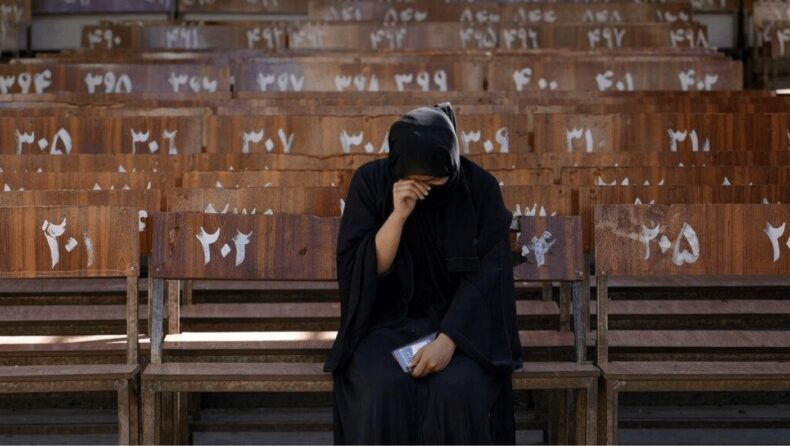Suicide bomber blew himself up next to women at gender-segregated study hall
The death toll from a suicide bomb attack on an education center in the Afghanistan capital Kabul last week has risen to at least 43, the United Nations mission in Afghanistan said on October 3.
Afghan-based media house Tolo News posted on twitter that on Friday, said the attack took place at an education institute where an entrance exam was taking place. Schools are normally closed in Afghanistan on Fridays.
Suicide attack on education center Afghanistan in Kabul’s neighborhood
On Sept 30, 2022, A suicide blast at an education institute in Afghanistan’s capital city of Kabul has taken place in an education center, reported news agency Reuters quoting Kabul police spokesperson.
A suicide bomber blew himself up next to women at a gender-segregated study hall in Kabul neighborhood on September 30, home to the historically oppressed Shiite Muslim Hazara community.

In the aftermath of Friday’s attack, footage on local TV and shared on social media appeared to show scenes from a nearby hospital, where rows of covered bodies were laid out on the floor.The attacker is reported to have shot at the guards outside the center, entered a classroom and detonated a bomb.
Eyewitnesses said that most of the victims were girls – they were seated in the front row, near the blast. A student who was wounded told that there were around 600 people in the room when the attack happened.
Hazara community protesting against the attack on education center
Hazaras, most of whom are Shia Muslims, are Afghanistan’s third largest ethnic group. They have long faced persecution from the regional affiliate of Islamic State (ISKP) and the Taliban, which both adhere to Sunni Islam.
Dozens of women from the Hazara community protested against the attack on educational center in Dasht-e-Barchi, a neighbourhood home to the Shia Hazara community in western Kabul.

Those who died in the attack were mostly Hazara women aged between 18 to 24 years who had been preparing for an exam.Women who gathered to demonstrate against the killings on Friday said Taliban forces opened fire and used physical violence to break up the protest minutes after it had started.
Many attacks have devastated the Dasht-e-Barchi neighborhood
Many attacks have devastated the Dasht-e-Barchi neighborhood, with several targeting women, children and schools. Last year, before the Taliban returned to power, at least 85 people — mainly female students — were killed and about 300 wounded when three bombs exploded near their school in the area.
No group claimed responsibility, but a year earlier ISIS claimed a suicide attack on an educational center in the same neighborhood that killed 24, including students.

In May 2020, the group was blamed for a bloody gun attack on a maternity ward of a hospital in Dasht-e-Barchi that killed 25 people, including new mothers.
And in April this year, two deadly bomb blasts at separate education centers in the area killed six people and wounded at least 20 others.
Education is a flashpoint issue in Afghanistan, with the Taliban blocking many girls from returning to secondary education. ISIS also stands against the education of women and girls.
Amnesty condemns attack as West stays silent
While most Western media have ignored the attacks, Amnesty International did put out a statement.
Samira Hamidi, Amnesty International’s South Asia Campaigner, said:
“Today’s horrific attack is just the latest in a series of attacks in areas dominated by the minority Hazara Shi’ite population and a shamefaced reminder of the inaptitude and utter failure of the Taliban, as de-facto authorities, to protect the people of Afghanistan. Urgent steps must be taken to ensure the safety of all people under the Taliban’s rule, especially the members of minority communities.”













